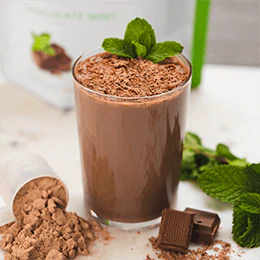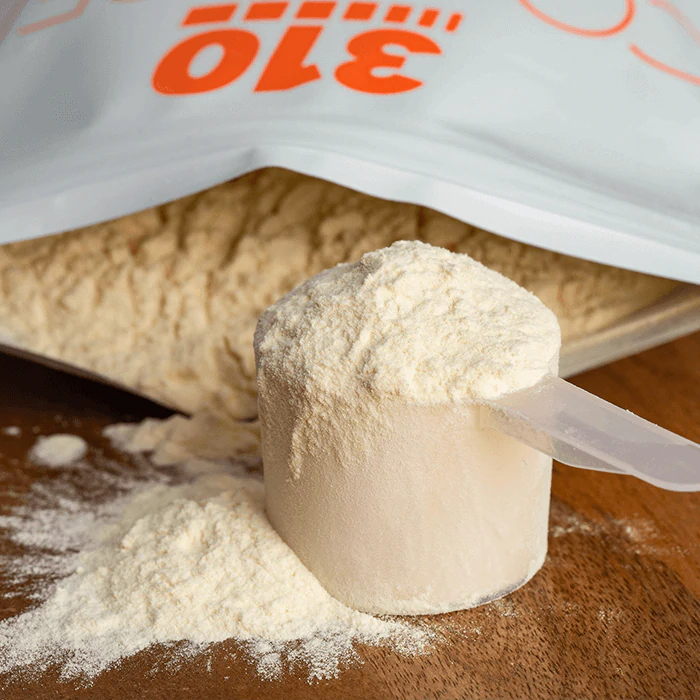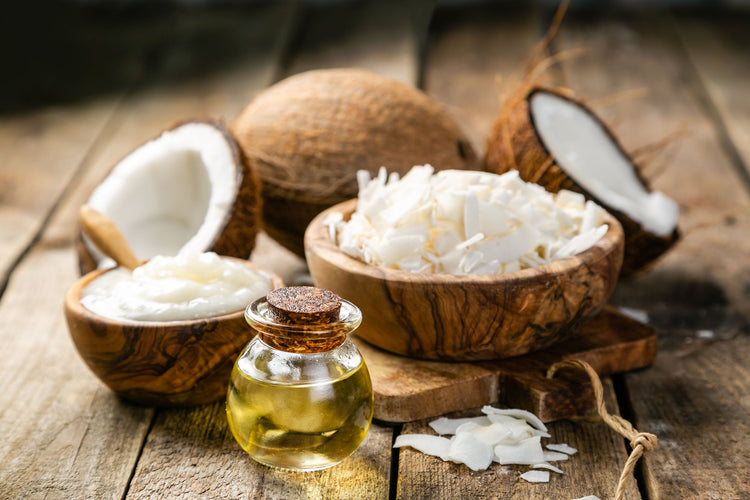MCT Oil vs. Coconut Oil: Which Is Better for Weight Loss?
While coconut oil has enjoyed the spotlight as a hot health product for many years, MCT oil is a much newer addition to the scene – but now seems to be surpassing coconut oil in popularity. This is leaving many people wondering… when it comes to MCT oil vs coconut oil, which one provides greater health benefits?
This article will provide an in-depth answer to the question “Is MCT oil better than coconut oil?” and give our recommendations for how to use each of them. We’ll help shed light on the differences between the two and ultimately let you know which one we suggest you add to your diet right away!
All About MCTs
The first step in the battle between MCT oil and coconut oil is learning about MCTs. MCTs, or medium-chain triglycerides, are a form of saturated fat found in coconut oil, palm kernel oil, and dairy products.
So what’s the difference between MCT oil and coconut oil?
MCT oil, or fractionated coconut oil, is a 100% concentrated form of MCTs that manufacturers produce by refining coconut or palm oil. Coconut oil comes from the flesh of the coconut and contains roughly 50% MCTs as well as some longer-chain fats.
Four types of MCTs
Fat takes the form of long-chain, medium-chain, or short-chain fatty acids based on the number of atoms in that chain. There are four different kinds of MCTs, all with varying lengths of carbon atoms (represented by the number next to the acid name). The health benefits of your coconut oil or MCT oil depends on the types of MCTs present:
This is the shortest MCT. It can convert into ketones but isn’t considered the best source of MCTs for ketone production.
This is the best and most effective MCT for the keto diet and fat-burning purposes. It can convert into ketones faster than any MCT. This MCT is also the best for fueling your brain and body.
This is another MCT (along with C8) that’s superior for rapid absorption in the body providing quick energy. It can also boost immune health.
This is the MCT you’ll find most in coconut oil, and least in MCT oil. Although it has antimicrobial and antibacterial properties, it’s less effective for fast energy and ketone production because it takes longer for the body to absorb.
MCT Oil vs. Coconut Oil For Weight Loss
Due to the shorter length of the chains, your body can digest MCTs faster than other longer-chain saturated fats, requiring little action from your liver. Thanks to their quick absorption, MCTs can give an instantaneous burst of energy to your body and brain.
Also, MCTs can help to increase your metabolism and are much more satiating than other fats (even coconut oil). This is because MCTs increase the level of hormones in your body that are responsible for telling your brain that you are full.
The best, highest-quality MCT oils will include higher doses of C8 and C10 MCTs (with the greatest overall concentration of C8). These shorter-chain fatty acids digest quickly in your body allowing for fast energy production instead of fat storage. Lauric acid or C12, found in coconut oil, absorbs slowly into the body, making it more likely to store as fat instead of used as energy.
Due to the higher concentration of C8 and C10 and low concentration of C12 in MCT oil, this makes MCT oil a better choice than coconut oil for helping to suppress appetite, reduce daily calorie consumption, and assist in weight loss. Although coconut oil is high in MCTs giving it some similar properties to MCT oil, it is not as concentrated. This makes the health benefits of MCTs less prevalent in coconut oil than MCT oil.
MCT Oil vs. Coconut Oil For Keto Dieters
The bottom line when it comes to all the different MCTs is that some are going to get you into ketosis faster (C8 and C10)– giving you the benefits of increased energy and greater fat-burning.
This is because MCTs C8 and C10 help increase the number of ketones in your body, making it easier for you to get into and stay in ketosis – the goal state for anyone on keto. Once in ketosis (where your body burns fat for fuel instead of carbs), you typically lose weight faster, plus have more energy and motivation to complete tasks.
Both MCT oil and coconut oil are high in fats and low in carbohydrates, the ideal ratio for the keto diet. Yet, as we mentioned, the highest-quality MCT oils will include higher doses of C8 and C10 MCTs. This makes the benefits of MCT oil much more concentrated – particularly for metabolism-boosting, fat-burning, appetite suppression, and ketone production.
On the other hand, coconut oil is about 50% MCTs. About half of that 50% is lauric acid (C12) and only around 14% (combined) is C8 and C10. This is a major reason why MCT oil is more of a staple ingredient in the keto diet or for weight loss compared to coconut oil.
For more information on the keto diet, check out our blog post, Keto Diet for Beginners: Your Complete Guide.
How Do You Use MCT Oil for Weight Loss?
Using MCT oil for keto and weight loss is extremely easy! First off, it’s important to consider the form you want to use. MCT oil comes in liquid or capsule form.
We recommend adding 1-2 tablespoons of liquid MCT oil into your keto coffee, keto smoothies, homemade salad dressings, cold soups, and more. There is no taste or odor so it’s extremely versatile!
Check out our 310 take on bulletproof coffee with our own Protein-Packed Keto Coffee Recipe.
If you’re serious about starting to reap the benefits of MCT oil, we recommend you check out our Keto Kit, which includes everything you need to make delicious, keto-friendly smoothies. This includes high-quality, 100% pure MCT oil – which is very high in the most beneficial MCTs, C8 and C10.
MCT Oil vs. Coconut Oil For Cholesterol
Studies have found that coconut oil consumption results in higher levels of LDL (or bad) cholesterol compared to other vegetable oils. While other studies have shown that coconut oil raises HDL (or good) cholesterol levels compared to olive oil and butter, it’s still a saturated fat that could negatively impact your heart health.
Some organizations such as the American Heart Association and the US Department of Agriculture’s Dietary Guidelines for Americans suggest that coconut oil is not better than other saturated fats, such as fatty meat, butter, or cream. They suggest limiting all saturated fats, including coconut oil, to less than 10% of calories due to its potential risk for heart disease.
So where does this leave MCT oil? The calories in MCTs absorb into the body right away, making them less likely to store as fat. Also, researchers have found that MCTs could help reduce LDL (or bad) cholesterol levels while boosting HDL (or good) cholesterol levels. This makes MCT oil a heart-healthier option than coconut oil and other saturated fats.
But Wait… Don’t Toss Your Coconut Oil!
While it’s true that MCTs and MCT oil can provide fast energy and other keto and weight loss benefits that coconut oil cannot, coconut oil still has a lot to offer.
Cooking and baking
While MCT oil has little to no taste, coconut oil has a rich tropical, nutty flavor that tastes great in a variety of dishes. It also has a high smoke point (versus MCT oil which has a low smoke point), which means it’s one of the safest oils to use in high heat cooking or baking.
Healthy skin and hair
Many people use coconut oil for cosmetic purposes, putting it on dry or irritated skin to restore moisture, and in their hair to prevent damage and increase shine. A 2021 study found that coconut oil helped increase hair strength after leaving it in overnight. Another study found that coconut oil has anti-inflammatory properties, making it a potentially beneficial topical treatment for the skin.
Dental hygiene
Since coconut oil is incredibly antibacterial, some people use it orally in a practice called oil pulling. This tactic includes swishing around 1-2 tablespoons of the oil in your mouth for 15-20 minutes and then spitting it out. The idea is that all the bad bacteria and toxins in your mouth go with it!
This practice is meant to be done first thing in the morning before you eat anything, and can benefit both your dental and immune health – since getting rid of bad bacteria in your body supports optimal wellness and helps fight disease.
Conclusion: Is MCT Oil Better Than Coconut Oil?
In conclusion, when it comes to which of these oils takes home the winning prize for being the best for you, the answer is MCT oil. However, it depends on how you plan on using them because coconut oil has its own unique benefits as well.
If you’re on starting keto or looking to lose weight, we highly recommend that you include MCT oil as a regular part of your diet. MCTs offer a nutritious fat source for your health and weight loss goals helping to boost your ketone production and increase your body’s calorie-burning.
Take your keto diet or weight loss plan to the next level with the 310 Keto Kit today (MCT oil included)!
Sources:
https://www.medicalnewstoday.com/articles/320251https://www.medicalnewstoday.com/articles/mct-oil-vs-coconut-oilhttps://www.nature.com/articles/ejcn2014145https://pubmed.ncbi.nlm.nih.gov/32949101/https://www.ncbi.nlm.nih.gov/pmc/articles/PMC4892314/https://www.ncbi.nlm.nih.gov/pmc/articles/PMC5855206/https://www.hsph.harvard.edu/nutritionsource/food-features/coconut-oil/















